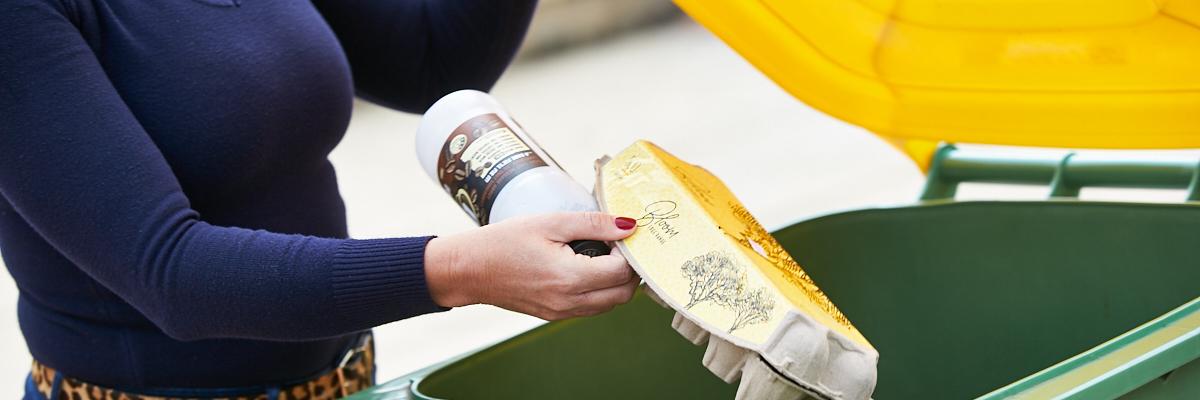Contamination in our recycling puts all recyclable materials at risk. It is important to know how to properly fill your recycling bin to ensure as many resources are recovered as possible.
How to place recyclables in your recycling bin
- All items should be placed loosely in your bin (and not in plastic bags).
- Items in plastic bags are not sorted and are automatically sent to landfill.
- Containers should be rinsed and dried, with the majority of food scraps removed.
- All cartons flattened.
- Do not place your plastic lids into the bin - these are too small to be sorted by the machines at the recycling facility.
- Do not jam items into your bin, to avoid issues when the bin is emptied.
If in doubt, please visit the Recycle Right WA website for more information.

What to place in your recycling bin
AluminiumAll aluminium cans including:
Cardboard
Plastic
|
SteelAll steel cans/tins including:
Paper
GlassGlass bottles and jars including:
|
Do not place in your recycling bin
The following items should not be placed in your yellow-lidded recylcing bin.
Items in bold are the most common contaminators of recycling in the City.
|
|
